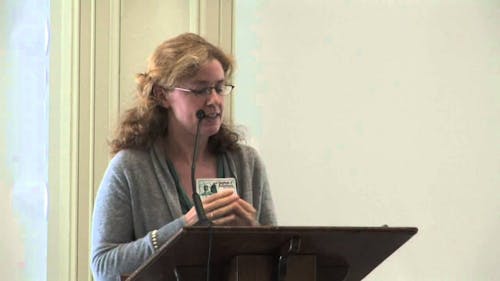Rutgers libraries expand resources to students, move past books

With the rise of technology, the role of Rutgers libraries is shifting past the traditional “book warehouse” model to provide more resources and events to its students.
In the past six years, library circulation for physical materials such as books and DVDs have decreased. On the other hand, there have been more visitors to the library’s website than in-person visitors, said Francesca Giannetti, the librarian of Digital Humanities.
“Most students and faculty at this point prefer electronic resources,” she said. “It’s a question of convenience. With e-books, digital and electronic journals and articles, you don’t have to physically come to the library.”
Tracking the use of electronic resources is a challenge the library is currently working on. Unlike physical books, students can copy or share digital sources without librarians knowing. Professors who download articles and chapters from a website to share with their students count as one use, even though more than one person has accessed the source, Giannetti said.
Despite the numbers, she said books were still useful to students. One of the top-requested fiction authors for books not available at Rutgers was William Shakespeare, which was unusual because his works are available for online access.
“Peers prefer print in certain contexts over digital,” Giannetti said.
Since there is an increasing demand for helping students navigate the research process, she said librarians have started coming to departments and schools to teach courses on how to conduct research.
“That’s an example of librarians coming to you, not expecting you to come to the library,” she said.
Another resource recently offered by the library is workshops teaching skills such as computer programming, data manipulation and analysis. Workshops teaching other research-oriented skills could be found on the library’s home page. Giannetti said these workshops helped students and faculty train for newer research methods.
Besides research and practical skills, the library also provides recreational events and resources for students. The library has several exhibits throughout the year from special collections and archives, some pertaining to the history of the University and New Jersey.
Giannetti said she also personally utilized websites found on the library homepage such as Smithsonian Global Sound, which focuses on world and folk music, and Kanopy, a service similar to Netflix which is free to all Rutgers students.
To help students de-stress from finals and studying, the library also offers fun and creative events such as free coffee and cookies, legos, button-making and coloring. Around finals week, she said a program called Stressbusters brings therapy dogs to the library.
“We’re moving away from books, and more towards helping people with the process of being a student and doing research,” Giannetti said.



